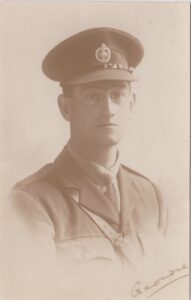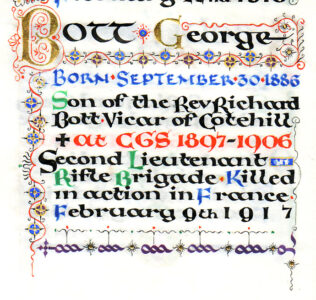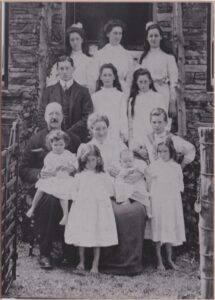Key Information
Name: George Bott
DoB: September 30 1886
Regt: Second Lieutenant 1st Battalion, Rifle Brigade
DoD: February 9 1917
Academic Career: CGS 1897-1906 and Oxford University
-
George was the eldest child of the Rev. Richard Bott and his wife Sarah Faulder. Richard had moved from London to become the Vicar at Newlands Church in the Lake District. The GS Register records the family living at Ousby Rectory, Culgaith. Oxford University Archive has a record of Catehill Vicarage (sic). George was one of 12 children; nine girls and three boys. The photograph of the family supplied by George’s great niece, shows them at The Warren on the shores of Derwentwater.




